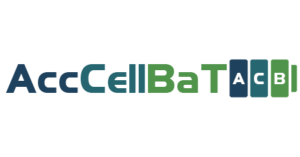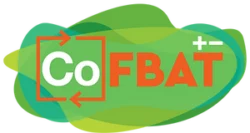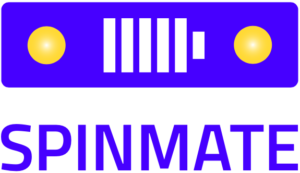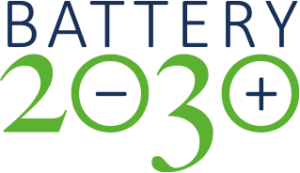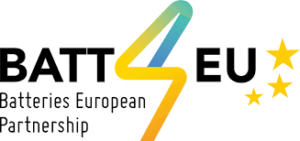Related Initiatives
Digibatt accelerates battery testing by combining state-of-the-art digital technology with advanced physical workflows, reducing testing time by 30% and costs by 20%. This 3-year Horizon EU project also emphasizes open-source tools, fostering innovation and collaboration within the global battery community.
THOR accelerates battery development by reducing costly, time-consuming testing protocols with a Digital Twin tool that simulates battery behavior. This project aims to shorten development times, cut the number of physical tests, and promote innovation in mobility and stationary battery applications.
AccCellBaT advances virtualization, front-loading, and continuous validation and verification (V&V) to optimize battery design, cut costs, and speed up time-to-market. It will develop a process manual and an integrated tool for managing V&V, validated by two manufacturers in the automotive and stationary battery sectors.
TEMPEST develops and matures a new generation of safe-by-design, recyclable, high performance, and lightweight batteries by providing a holistic approach to next-generation lithium battery technologies, evaluating solutions for batteries, which will strengthen the overall positioning of Europe in the global batteries market, and increase its independence on outside markets.
NEXTCELL’s overarching goal is to provide a new Li-Ion cell generation for both high capacity and high voltage applications by developing and validating a ground-breaking gellified cell concept, integrating several innovations at the material level for each of the main cell components: the gellification of the electrodes and the separator in combination with a high voltage-stable gel electrolyte will allow the development of the full gel cell concept.
The innovations proposed in NoVOC centre on improvements of cell manufacturing process by integrating two novel electrode manufacturing processes into the currently available cell assembly process and demonstrate manufacturability of automotive cells in two formats (pouch and cylindrical) with no toxic organic solvent at the fraction of the cell manufacturing cost that is currently available today.
The greenSPEED project offers solutions for new sustainable electrode and cell manufacturing processes with reduced energy consumption, lower carbon footprint and ZERO Volatile Organic Compounds (VOCs) emissions. To that aim, the project main target is developing a battery cell comprised of electrodes manufactured by innovative dry processes.
BatWoMan develops new sustainable and cost-efficient Li-ion battery cell production concepts, paving the way towards carbon neutral cell production within the European Union by energy-efficient, no volatile organic compounds (VOCs) processed electrodes, innovative dry room reducing concept with improved electrolyte filling; and low-cost and energy-efficient cell conditioning, namely wetting, formation and ageing.
CoFBAT is a strategic project in achieving the EU energy transition targets through the development of an innovative battery storage solution. Therefore, CoFBAT project aims to develop the next level of battery storage with a modular technology, suitable for different applications that can meet the need for decentralised energy production and supply for private households and industrial robotised devices.
COBRA aims to develop a novel Cobalt-free Lithium-ion battery technology that overcomes many of the current shortcomings faced by Electrical Vehicle (EV) batteries via the enhancement of each component in the battery system in a holistic manner. COBRA will use battery chemistry consisting of an LNMO cathode in combination with a composite anode based on nanometre silicon and graphite as active particles.
The Arrowhead Tools project aims for digitalisation and automation solutions for the European industry, which will close the gaps that hinder the IT/OT integration by introducing new technologies in an open source platform for the design and run-time engineering of IoT and System of Systems. The project will provide engineering processes, integration platform, tools and tool chains for the cost-efficient development of digitalisation, connectivity and automation system solutions in various fields of application.
SPINMATE aims to demonstrate a scalable, sustainable, safe, and cost-effective digital-driven proof-of-concept pilot line, at a Technology Readiness Level 6, as a first step towards the large-scale manufacturing of generation 4b (Gen 4b) SSB cells and module, to support the electrification of the automotive sector.
SENSIBAT’s overall objective is to develop a sensing technology for Li-ion batteries that measures in real-time the internal battery cell temperature, pressure (e.g. mechanical strain, gas evolution) conductivity and impedance (separately for the anode, cathode and electrolyte). The data and insights from these new sensing technologies will be used for the development of improved state estimator functions based on an improved understanding of how, where and when degradation and failure mechanisms occur.
LIBERTY’s overall target is upgrading EV battery performance, safety and lifetime from a lifecycle and sustainability point of view. The key objectives of LIBERTY are to achieve a range of at least 500 km on a fully charged battery pack, halved charging times, an ultimate safe battery system, a long battery lifetime of over 300,000 km for first life, the ability to reuse the battery pack for second life applications and sustainability over the battery pack’s entire life cycle.
SEABAT will apply a modular approach, with the aim to reduce component costs (battery, convertor) so that unique ship designs can profit from economies of scale by using standardised low-cost modular components. In SEABAT existing commercial battery cells will be used, the concept will be suitable for future battery generations and high-power components that may have higher power densities or are based on different chemistries.
Battery 2030+ is a European research initiative uniting key stakeholders to develop high-performance, sustainable batteries and advance the battery value chain through digitalisation and AI. Supporting the European Green Deal, it aims to create safe, affordable batteries, innovate new chemistries, and enhance manufacturing and recycling. Projects run from 2020 to 2027, ensuring European leadership in various sectors.
BATT4EU, a Co-programmed Partnership under Horizon Europe, involves the European Commission and the Batteries European Partnership Association (BEPA). It aims to create the world’s best innovation ecosystem for a competitive and sustainable European battery value chain by 2030. By pooling resources from industry, research, and the public sector, it supports e-mobility, stationary energy storage, and the transition to a carbon-neutral society, focusing on advanced battery technologies and sustainability.



